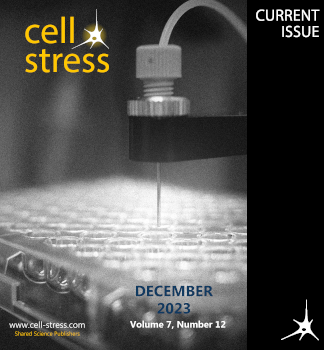Impact of prophylactic TNF blockade in the dual PD-1 and CTLA-4 immunotherapy efficacy and toxicity
IF 4.1
Q2 CELL BIOLOGY
引用次数: 16
Abstract
The TNF blockade therapy is currently a well-established treatment option for a variety of autoimmune diseases such as rheumatoid arthritis (RA), psoriasis or Crohn's disease, given the proinflammatory role of TNF in the course of these diseases. Importantly, TNF neutralization is also used for the treatment of corticosteroid-refractory immune-related adverse events (irAEs) induced by the combined anti-PD-1 and anti-CTLA-4 immunotherapy. The manifestation of these toxicities is an important limiting factor for the successful implementation of the inhibitory checkpoint blockade therapy (ICB), restraining its anti-tumor efficacy. In our recent study (Perez-Ruiz et al., Nature 569(7756): 428-432.), we analyzed the potential impact of prophylactic TNF neutralization therapy in the anti-PD1/CTLA-4 efficacy. Through several mouse models, we demonstrated that TNF neutralization ameliorated ICB-exacerbated colitis in addition to improving ICB-dependent anti-tumor efficacy. Similar results were obtained after prophylactic TNF blockade in graft vs host xenografted mouse models with human immune cells, which showed a reduction in colitis and hepatitis. Importantly, there was a preservation of the immunotherapeutic control of xenografted tumors after ICB treatment. Moreover, TNF and TNF-dependent gene expression is upregulated in the colon mucosa from patients affected by colitis as a side effect of ipilimumab and nivolumab. Our results, thus, provide evidence of the successful combination of prophylactic TNF neutralization with ICB therapy strategy to ameliorate toxicities, while keeping or even ameliorating anti-tumor efficacy. The prophylactic TNF blockade strategy is clinically feasible since excellent TNF inhibitors have been approved for the treatment of autoimmunity and are used for the immune-related serious adverse events in immunotherapy.预防性TNF阻断对PD-1和CTLA-4双重免疫疗法疗效和毒性的影响
鉴于TNF在各种自身免疫性疾病(如类风湿性关节炎(RA)、银屑病或克罗恩病)过程中的促炎作用,TNF阻断疗法目前是一种公认的治疗选择。重要的是,TNF中和也用于治疗联合抗PD-1和抗CTLA-4免疫疗法诱导的皮质类固醇难治性免疫相关不良事件(irAE)。这些毒性的表现是抑制性检查点阻断疗法(ICB)成功实施、抑制其抗肿瘤疗效的重要限制因素。在我们最近的研究(Perez Ruiz等人,Nature 569(7756):428-432)中,我们分析了预防性TNF中和治疗对抗PD1/CTLA-4疗效的潜在影响。通过几个小鼠模型,我们证明TNF中和除了改善ICB依赖性抗肿瘤疗效外,还改善了ICB加重的结肠炎。在具有人类免疫细胞的移植物与宿主异种移植小鼠模型中预防性阻断TNF后也获得了类似的结果,其显示结肠炎和肝炎的减少。重要的是,在ICB治疗后,异种移植肿瘤的免疫治疗控制得到了保留。此外,作为易普利木单抗和尼沃单抗的副作用,结肠炎患者结肠粘膜中TNF和TNF依赖性基因表达上调。因此,我们的研究结果为预防性TNF中和与ICB治疗策略的成功结合提供了证据,以改善毒性,同时保持甚至改善抗肿瘤疗效。预防性TNF阻断策略在临床上是可行的,因为优秀的TNF抑制剂已被批准用于治疗自身免疫,并用于免疫治疗中的免疫相关严重不良事件。
本文章由计算机程序翻译,如有差异,请以英文原文为准。
求助全文
约1分钟内获得全文
求助全文
来源期刊

Cell Stress
Biochemistry, Genetics and Molecular Biology-Biochemistry, Genetics and Molecular Biology (miscellaneous)
CiteScore
13.50
自引率
0.00%
发文量
21
审稿时长
15 weeks
期刊介绍:
Cell Stress is an open-access, peer-reviewed journal that is dedicated to publishing highly relevant research in the field of cellular pathology. The journal focuses on advancing our understanding of the molecular, mechanistic, phenotypic, and other critical aspects that underpin cellular dysfunction and disease. It specifically aims to foster cell biology research that is applicable to a range of significant human diseases, including neurodegenerative disorders, myopathies, mitochondriopathies, infectious diseases, cancer, and pathological aging.
The scope of Cell Stress is broad, welcoming submissions that represent a spectrum of research from fundamental to translational and clinical studies. The journal is a valuable resource for scientists, educators, and policymakers worldwide, as well as for any individual with an interest in cellular pathology. It serves as a platform for the dissemination of research findings that are instrumental in the investigation, classification, diagnosis, and therapeutic management of major diseases. By being open-access, Cell Stress ensures that its content is freely available to a global audience, thereby promoting international scientific collaboration and accelerating the exchange of knowledge within the research community.
 求助内容:
求助内容: 应助结果提醒方式:
应助结果提醒方式:


